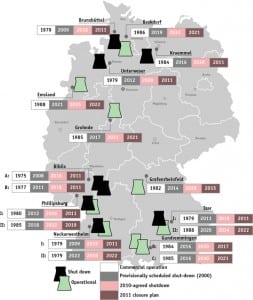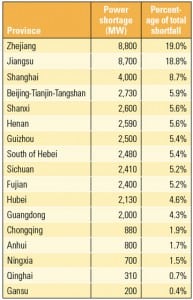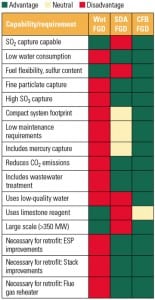Coal
-
Coal
Germany’s Energy Transition Experiment
Germany has chosen to transform its energy system within a few decades—an ambition that has evoked equal admiration and confusion. Has Europe’s largest economy embarked on a rational path to an energy future that will make it the bellwether for global acceptance of renewables, or will the complex array of current challenges encumber its grand transformation?
Tagged in: -
Coal
China Wrestles with Power Shortages
China has gone through three periods of nationwide power shortages since 1978. The previous two shortages were mostly caused by the lack of installed generation capacity. However, the third—which has severely restricted economic development—is a consequence of institutional problems that must be corrected.
-
Coal
CFB Scrubbing: A Flexible Multipollutant Technology
The number of regulated air emission constituents is increasing while the acceptable amounts for release are decreasing. In the long run, picking the most flexible multipollutant technology is surely the least cost option.
-
Coal
Settlement Between Feds, Wisconsin Utilities Mandate More Coal-Plant Retirements
A settlement between the federal government, the Sierra Club, and Wisconsin Power and Light Co. (WPL) on Monday could require the Madison-based Alliant Energy subsidiary and other defendants to invest more than $1 billion in pollution controls and retire and refuel at least four units at three Wisconsin coal-fired power plants to resolve alleged Clean Air Act New Source Review violations.
-
Coal
EPA Proposes Revisions to Steam Electric Power Plant Effluent Guidelines
Revisions proposed on Friday by the Environmental Protection Agency (EPA) to technology-based effluent limitations guidelines and standards could set the first federal limits on the levels of toxic metals in wastewater discharges from steam electric power plants. The proposed rule would help reduce pollutants in U.S. waterways from coal ash, air pollution control waste, and other power plant waste, but they could come at a cost of between $185.2 million to nearly $1 billion a year, the agency said.
-
Coal
Lawmakers Push for Financing Parity for Renewable Projects
Bipartisan legislation introduced on Wednesday by a bicameral group of lawmakers seeks to give renewable energy project investors access to an existing corporate structure whose tax benefits are now only available to investors in fossil fuel–based energy projects.
-
Coal
EPA Nominee Says Environmental Protection Is a Nonpartisan Issue
Gina McCarthy, who has served for the past four years as assistant administrator for the Environmental Protection Agency (EPA) Office of Air and Radiation, responded to questions from a Senate committee on April 11 in a hearing on her nomination to become the next administrator of the EPA.
-
Coal
EPA Delays GHG Emissions Decision and Adds to FutureGen Challenges
The U.S. Environmental Protection Agency (EPA) deadline for placing greenhouse gas (GHG) emission limits on new fossil-fueled power plants has come and gone. Comments from EPA staff indicate little urgency in setting a new deadline. Meanwhile, prospects for FutureGen 2.0, originally developed with GHG limits in mind, are looking bleaker.
-
Coal
IEA: Carbon Mitigation Efforts Have Stalled Despite Rapid Renewables Expansion
The carbon intensity of the global energy supply has barely budged in more than two decades despite otherwise successful efforts in deploying renewable energy, the International Energy Agency (IEA) warns in an annual report submitted to the Clean Energy Ministerial (CEM) on Wednesday.
-
Coal
EIA Projects Coal Generation Gains Due to Increasing Gas Prices
The increasing cost of natural gas relative to coal is expected to increase coal’s share of total generation from 37.4% in 2012 to 39.9% in 2013, according to the U.S. Energy Information Administration (EIA) April release of its Short-Term Energy Outlook (STEO). Though that would leave coal’s percentage below its 42.3% share in 2011, it indicates that gas may not be on an inevitable path to overtake a significantly greater share of the generation pie.



